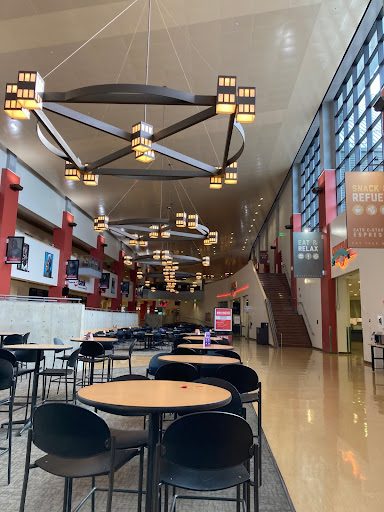Pandemic Life Alters College Life
January 19, 2022
Many college students starting in the fall of 2020-21 have experienced an entirely different school experience than their peers of 2019. A host of new restrictions, standards and mandates have altered secondary education for millions of students around the world. Lifesaving vaccines have been developed yet this has become a polarizing topic for many between personal responsibility and individual rights, most notably when universities began mandating COVID-19 vaccines.
While the debate on vaccines has been ongoing on both a local and national level, many have logged onto Zoom for the first time to begin the next chapter into adulthood. Is this the new normal? Gone are the days of SAT/ACT scores dictating college proficiency. As the lectures drag on, students may be tempted to reach for their phones to remain connected with the outside world. Since the pandemic began, our world has been moved further online creating further gaps in our social cohesion.
 Shortages among staff and resources plague even the most prepared universities. More than two years in and pandemic fatigue has begun to catch up to the most tolerant students. Many find their classes to be entirely remote, hybrid or canceled altogether. Many students opted to move back in with family and friends to reduce the high costs of college education.
Shortages among staff and resources plague even the most prepared universities. More than two years in and pandemic fatigue has begun to catch up to the most tolerant students. Many find their classes to be entirely remote, hybrid or canceled altogether. Many students opted to move back in with family and friends to reduce the high costs of college education.
For many, the pandemic meant they missed out on high school graduations and other social activities. Students are limited in the social opportunities that college life typically brings. Many sophomores have returned to campus for the first time after their freshman year being entirely online. They now must navigate a whole new campus for the first time.
Since most students have been vaccinated, a semblance of normalcy has returned.
Classes for the most part have returned in person, with the majority of the COVID-19 protocols in the beginning of the pandemic being rolled back.
However, new concerns around Omicron have further challenged this semi-return to normalcy. Positive cases for COVID-19 in Kittitas County are at record levels, with the Daily Record reporting that “Kittitas County Temporarily Suspends Updates to COVID Dashboard.” In-person classes appear noticeably emptier than weeks prior. Much to the dismay of many, the mask mandates have remained in full effect for the foreseeable future. “Now, almost three years into the pandemic, when will we return to a state of normalcy?”
College students are resilient individuals, willing to continue despite the uncertainty of the next phase of the pandemic. The future of secondary education has been altered for a generation for college students forever. They have been robbed of the opportunity for freedom with a host of new worries and concerns.
The thought of COVID-19 remains in the back of our minds. Living through a pandemic changes your perspective with all the new risks of everyday activities. Simple tasks such as going grocery shopping carry different risks than a world without the coronavirus. Nothing about this feels normal.
With cases at record highs, many unknown questions remain around what the new normal may look like. Perhaps much like the AIDS epidemic of the 1980s, the COVID-19 pandemic going forward may focus on antiviral treatments and testing. Society as a whole may need to take additional precautions, but for the most part life will continue.
In order for the pandemic to come to a gradual end, it’s imperative that everyone gets vaccinated to protect the most vulnerable from suffering the consequences of not taking precautions to end the COVID-19 pandemic.

